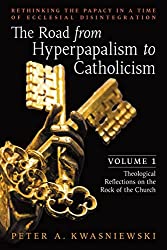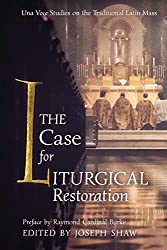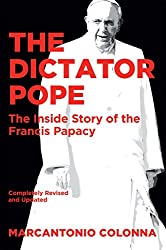
January 2011 Amendment: The following entry was originally written under a slight misapprehension as to the Holy Father’s words. In a British print journal, I had read the Pope say that in terms of the global climate crisis: The Church is the only hope.
The quote was taken from Light of the World – the new book-length interview with Benedict XVI. Yet when I gained access to the book itself, I saw that the British paper had dropped the word “often”.
This may yield a slightly different interpretation to the Pope’s words. I have thus changed the headline above by inserting the missing word. I have not revised the entry below – which reflects my original apprehension of the quote.
However in a new entry here, I have apologised for my mistake and pondered how significant this single word is. I will also soon post the Pope’s exact words at length. The blog as originally written now follows:
Something controversial this time.
And I am startled by how little the world’s media appears to have picked up in it.
That is to say, in my view, the Pope has said something most remarkable in his recently published book The Light of the World.
And yet so far my Google searches for his remarkably striking words have turned up little indeed.
Yet speaking in connexion to the failure of the Copenhagen summit and the threat of climate change, the Pope has said:
In view of the threatening catastrophe, there is recognition everywhere that we must make moral decisions.
Yet although there was wide recognition of this – at least in theory – the Holy Father said
The conversion of this into political will and political actions is rendered largely impossible by the lack of willingness to do without.
But the Pope adds:
Who therefore, can ensure that this general awareness also penetrates the personal sphere?
This can only be done by an authority that touches the conscience, that is close to the individual and does not merely call for eye-catching events.
In that respect this is a challenge for the Church.
She not only has a major responsibility; she is, I would say, the only hope.
The radicalness of the statement only becomes more apparent when one realises precisely what the Holy Father means when he speaks of the Church.
The word “Church” here does not mean what it is frequently taken to mean in the Anglophone world, where that word is now frequently used interchangeably for Protestant, Catholic or Orthodox bodies.
As I have endeavoured to explain here, the Pope remains with the understanding of this word that prevailed for 1,500 years before the Reformation.
Out of compassion as I have suggested, the Holy Father tends to speak of the Protestant congregations as “Ecclesial Communities”, which certainly point to Christ.
However in the original understanding of the word Church, one did not go to a congregation primarily to be pointed to Jesus Christ – by a sermon for example, however fine or beautiful that sermon might be.
The main reason for entering the Church was to avail oneself of the Mass. The Mass is there that we might consume His Body and drink His Blood …
That as St Augustine I believe indicated, we might eat what we become, become what we eat …
Thus when the Pope uses the word Church, he is referring to the Roman Church in the West and the Churches of the East which continued the primary mission of the Church of the Seven Sacraments without diminution.
For leaving aside the question of the validity of the Sacraments outside the Roman and Eastern Churches, it has to be acknowledged that the Sevenfold Mystery is diminished.
Even if we were to look to the Protestant congregations for the Sacraments, we would have to note that the Sacrament of Confession is not there. Moreover that which is called a Eucharist might only be celebrated once a month.
By contrast, the Catholic Church offers the Sacraments daily.
I am going to speak very personally now.
It is Saturday. I have returned from morning Mass and Confession.
I feel it.
I feel the difference these Sacraments make.
The Sacraments confer FIRE …
And it seems to me that the nature of this fire is a moral fire.
Speaking very personally and very colloquially, I would be far more messed up without the Sacramental Fire.
My heart would be colder. My commitment would be lessened.
But there is no need to heed my paltry personal confessions here. The testimony of countless Saints speaks far more eloquently than mine ever will of the moral fire of the Sacraments.
And on another note, this weblog entry is being written extremely hurriedly with very limited access to the Internet right now.
I regret I cannot yet clearly unpack all I would like to say at this point about the Pope’s words …
But for what it is worth, when the Pope says that the Sacramental Church of Christ is our only hope …
He echoes – again for what little that is worth – what my life has been painfully pointing me to for years.
A non-Sacramental civilisation may indeed turn out to be unsustainable, catastrophically unsustainable.
That is what years of reflexion and experience point me to, dear Reader.
I cannot further elaborate that now. But that expresses an idea that I have been trying to express through many of the writings at this site.
Finally my apologies to those I am slow in responding to …
Foreword for Monarchy by Roger Buck
Buying Books at Amazon Through These Links Gives Us a Commission. This Supports Our Apostolate. Thank You if You Can Help Us Like This!








